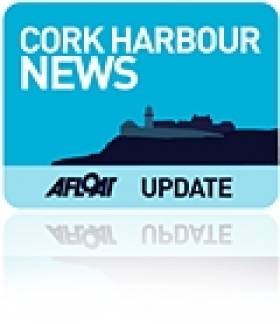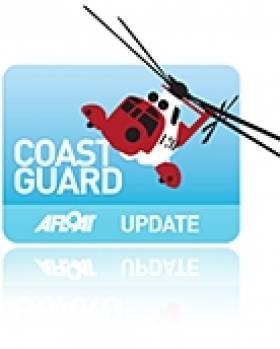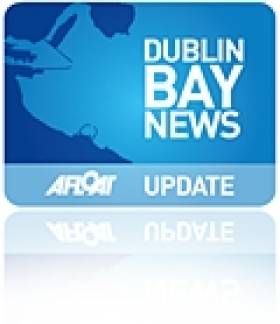Displaying items by tag: editorial
Haulbowline Toxic Waste Site Will Be Cleaned Up by 2014 Says Govt
#CORK HARBOUR - The Government has finally set a deadline for the clean-up of the toxic waste site on Haulbowline Island in Cork Harbour, under threat of massive fines from the European Commission.
RTÉ News reports that a two-and-a-half year deadline has been set to complete the sanitation of the illegal dump on the island at the site of the former Irish Steel/Ispat plant.
Some 500,000 tonnes of waste, including toxic heavy metals and cancer-causing materials, have been blamed for the area's notoriety in having one of the highest cancer rates in Ireland.
As previously reported on Afloat.ie, in October last the Government signed off on a €40m package to begin clean-up of the toxic waste site on the island.
In an editorial yesterday, the Irish Examiner welcomed the Government's decision, but emphasised it was long overdue.
"[It] cannot dispel the great frustration that it has taken so very long to do what should have been done years ago," the paper said.
"To this day nobody has explained how an illegal dump of this scale was allowed to develop on a site that is not exactly secluded, remote or out of the public eye - it is, after all, just next door to the country’s main naval base."
The Irish Examiner also reports on worries that the toxic waste may never be fully removed from the island, but rather sealed off and made impermeable.
Minister for the Marine Simon Coveney was quoted as saying: "This whole clean-up plan will be peer reviewed so it’s best practice but it could be better to contain the material onsite rather than remove it.
"We will be doing all that is reasonable to ensure the site is safe."
Bangor's Future 'A Victory for People Power'
The decision to keep open Northern Ireland's only dedicated search and rescue base is a victory for people power, says the Belfast Telegraph.
As previously reported on Afloat.ie, the station at Bangor was saved from closure following a review of plans to streamline the UK's coastguard network.
In an editorial on Friday, the paper said: "Northern Ireland really is a place apart geographically and no-one was convinced that the waters around our coastline from Lough Foyle to Strangford and the inland waterways of Lough Neagh and Lough Erne could be safely monitored by what amounted to remote control if Belfast Coastguard was closed."
The preservation of the service at Bangor is also "a victory for common sense".
The paper added: "From now on every person plucked from the sea or the loughs will utter a heartfelt thanks to those who fought to keep the service locally-based and they will also praise Transport Minister Phillip Hammond for sparing it from closure."
Today's Irish Times editorial raises questions over the new 'masterplan' for Dun Laoghaire harbour.
As previously reported on Afloat.ie, the plan is intended to position Dun Laoghaire "as a marine, leisure and tourism destination of international calibre".
But The Irish Times says: "[The] company needs to reassure the public that all of the proposed uses can be safely accommodated within the granite enclosing arms of this great harbour, without conflicting with each other.
"Is it realistic, for example, to have greatly expanded facilities for sailing and at the same time provide berthing for very large 'next generation' cruise liners? How realistic is the plan to develop 300 apartments within the harbour area in the current market?"
Doubts are also raised about the feasibility of Dublin hosting two cruise liner facilities if plans to expand Dublin Port get the go-ahead.
The Irish Times website has more on the story HERE. The Dun Laoghaire Yacht Club's joint response to the masterplan is HERE
Afloat Magazine. Ireland's Sailing, Boating and Maritime Publication
Afloat now in its 43rd year of production is a vibrant specialist magazine which has continually adapted to the demands of its readership, with an industry insight which is quite simply unique. Edited by David O'Brien (47), a former European and World sailing champion and Olympic sailor from the 2000 Games, it is produced by a group of dedicated watersports enthusiasts and has become essential reading for all those who have more than a passing interest in the development of Irish watersports.
Afloat is the only publication dedicated to serving the needs of the sector, and it does so with a truly independent voice. Afloat's association with the industry's twin governing bodies the ISA and IMF allows it to offer an insider view, but the magazine maintains independent editorial control.
Packaged as a glossy magazine with an emphasis on colour photography, no other specialist magazine in Ireland offers such an impressive range of comment, information and advice in such an attractive format.
Click the links below for more on Ireland's sailing and boating magazine:






























































